Few people spend more time on Western North Carolina’s rivers than Chris Gragtmans. Our waterways, he says, have become increasingly popular with outdoor enthusiasts in the past few years — a sentiment echoed by a number of local leaders in the paddle-sports industry. What’s more, the trend is national. And while local excursion providers, rental shops and retailers adjust to meet growing demand, increased development along the Asheville section of the French Broad River suggests recreational use of the river will stay strong for years to come.
The 27-year-old Gragtmans, based in Asheville, is busy. Besides competing in pro-kayak events from China to Canada, he also manages the Dagger brand’s Pro Competition Team, writes about paddling for multiple publications and also recently began competing in one of the sports newest additions, stand-up paddle boarding.
“There’s been a decent increase [in kayaking] over the last five years,” Gragtmans explained via Facebook Messenger while on an excursion in the Idaho backwoods. “The glory days of kayaking were pre-2008. [National] sales overall dropped by about 50 percent during the recession, partly because it’s such a disposable-income endeavor. The sport has bounced back since then, but not close to its previous glory. Sales are quite strong now, and traffic is up,” he said. And local rafting and tubing businesses have been experiencing basically the same trend, he added — describing a recession-driven crash followed by gradual recovery.
Gragtmans’ claim is supported by Gavin Young, senior marketing manager at local outdoor excursion giant Nantahala Outdoor Center, which has retail outlets in Bryson City, Asheville and Gatlinburg, Tennessee. “Over the past seven seasons, we’ve seen an increase in participation on our whitewater activities. In fact, this year, we’re already at a 10 percent increase for guided rafting reservations and have high expectations that the number will continue to increase as we enter the summer season.”
Asheville Adventure Rentals, which sells and rents equipment from its facility on the banks of the French Broad River, is experiencing similar growth. “We have definitely sold more boats this year than at this time last year,” said co-owner Derek Turno. “We’ve sold more instruction sessions, and accessory sales are up,” he added, estimating a 30 percent increase in revenue this spring compared to last spring.
Everybody’s doing it, sitting or standing
The picture is similar at the national level. The Outdoor Foundation’s 2014 Outdoor Recreation Participation Topline Report shows significant increases in most outdoor paddle sports, including whitewater kayaking (2.1 million participants, up 14 percent over the prior year) and recreational kayaking (8.7 million, up 7 percent). The only sectors showing decreases were rafting (3.8 million, down 4.6 percent) and canoeing (10.2 million, down 1.2 percent).
The study reported dramatic jumps in two paddle-sports newcomers: kayak fishing (1.8 million, up 28 percent) and stand-up paddle boarding (2 million participants, up 29 percent).
Gragtmans concurs. “I have seen massive increases in stand-up paddle boarding; that industry is roaring,” he said.
Interestingly, the nation’s economic downturn may have been the catalyst that fueled the other biggest growth area, kayak fishing, Gragtmans said. While anglers who want to get out on rivers or lakes may need upwards of $40,000 to purchase a traditional fishing boat, a high-end kayak fishing setup runs closer to $3,000. “In this case, the disposable income theory actually works for sales,” Gragtmans said, arguing that post-recession consumers have less to spend overall.
In answer to why more outdoor enthusiasts are finding more ways to spend time on local rivers, both Gragtmans and Young cite the general upturn in the economy, and Turno says people are making deeper connections with our rivers.
“It’s kind of a lifestyle change,” Turno said. “There is something about the river that is totally relaxing. It takes you away from everything and forces you to pay attention to the task at hand. The people you encounter are awesome. It’s a natural fit for the Asheville lifestyle.”
There is no question that many in Asheville have embraced the half-day French Broad float as a popular weekend group outing. Clusters of multi-colored floats, lazily drifting along the river, are now a common sight on warm-weather weekends, while refurbished school buses pull trailers full of tubes, rafts and boats up and down Asheville’s Riverside Drive and Amboy Road.
NOC, which offers excursions on eight Southeastern rivers in four states, is the region’s paddle-sports and outdoor-excursion juggernaut. Young says NOC has responded to increased demand by increasing staffing. NOC currently employs more than 1,000 people. Before the recession hit, NOC’s staff numbered about 800 employees, Young explained. While customer numbers now are comparable to pre-recession levels, NOC’s business model has changed drastically since then, he said, noting that they now package excursions with lodging, dining and retail opportunities as well as other activities such as instruction, zip lining and lake tours. This approach has been key to NOC’s increased revenue, he explained. “We took the recession as an opportunity to build a new, more competitive set of offerings for our guests,” he said.
The business of connecting people with nature
While business must attend to the bottom line, keeping a connection to deeper purposes and the environment seems to resonate with the local industry. Young said, “We always need to be thinking about how to further our mission of introducing the public to the physical, emotional and social benefits of human-powered outdoor recreation, and that [delivering] a superior guest experience is top of mind in every decision. Basically… there’s not time to sit back and enjoy the increase.”
In terms of environmental impact, Turno isn’t worried. “The river can handle it,” Turno said confidently. “It’s a low-impact environmental sport. We don’t litter. If anything, we clean up. Everybody looks out for each other.”
At NOC, Young claims the best part of the job comes with exposing future generations to rivers and the outdoors. “It’s exciting that we are contributing to a healthy world, giving guides and athletes a place to work where they can also play or train, and helping people get out of their comfort zones or conquer fears and try something new,” Young said. “Most exciting is to share the wonder of nature with kids, the next generation who will protect our rivers and natural places and who will be stewards of our environment.”
Expect more people on the Asheville sections of the French Broad. While no one knows how many people will visit New Belgium Brewing’s Asheville brewery, the company’s Colorado headquarters draws 150,000 annually. City of Asheville plans call for investing millions of dollars in the River Arts District for greenways, transportation-corridor and other enhancements. Earlier this year, a feasibility study by Colorado-based S230 Design and Engineering, conducted for a consortium of river enthusiasts, concluded that a whitewater park could be built between the Bowen and Craven Street bridges, adjacent to New Belgium, for less than $2 million. Vice-mayor Marc Hunt, who was involved in initial discussions with the consortium, said “I think this project does have great potential, and I am glad interest for it is stirring.”
“Asheville is an unusual place because we place such priority in fringe and outdoor sports. It’s fun to live in a place like that and be a very active part of the community and the growth. The French Broad is an amazing resource,” Gragtmans said.



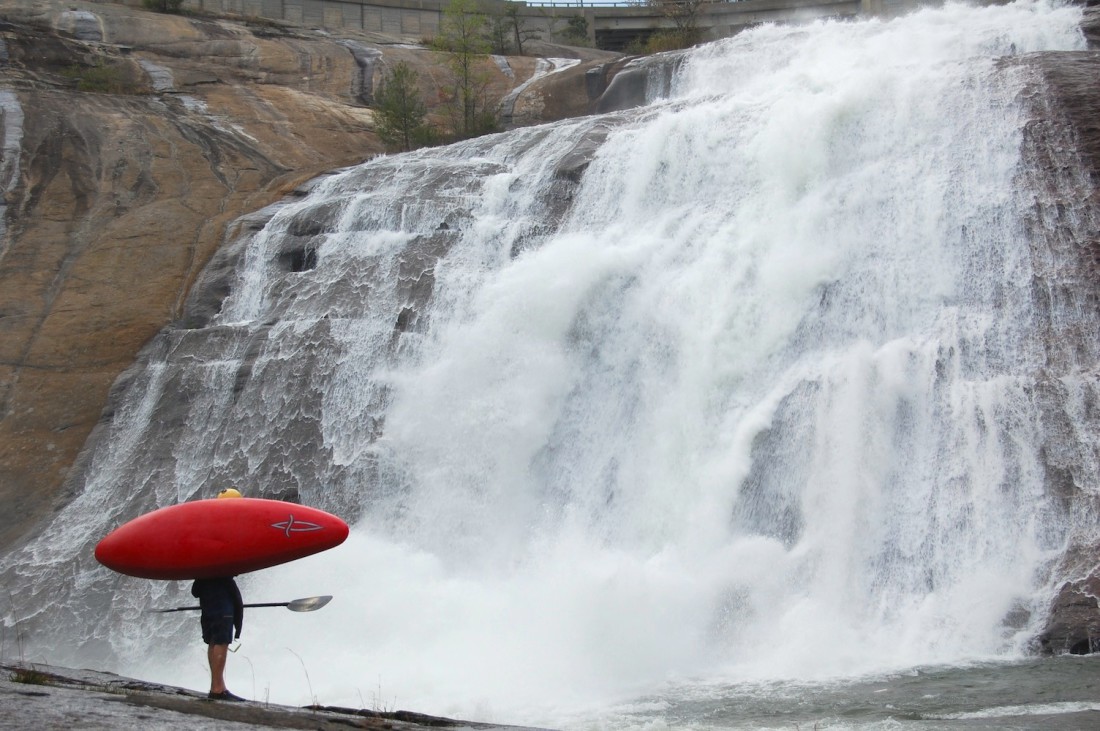
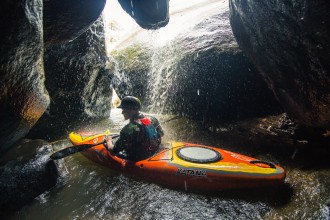
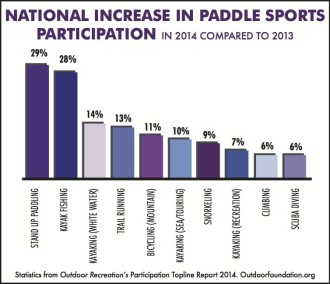
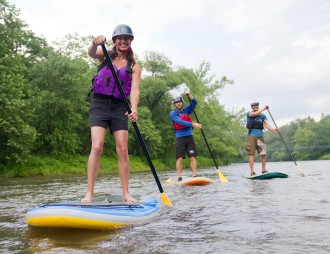
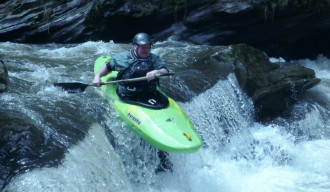
Before you comment
The comments section is here to provide a platform for civil dialogue on the issues we face together as a local community. Xpress is committed to offering this platform for all voices, but when the tone of the discussion gets nasty or strays off topic, we believe many people choose not to participate. Xpress editors are determined to moderate comments to ensure a constructive interchange is maintained. All comments judged not to be in keeping with the spirit of civil discourse will be removed and repeat violators will be banned. See here for our terms of service. Thank you for being part of this effort to promote respectful discussion.